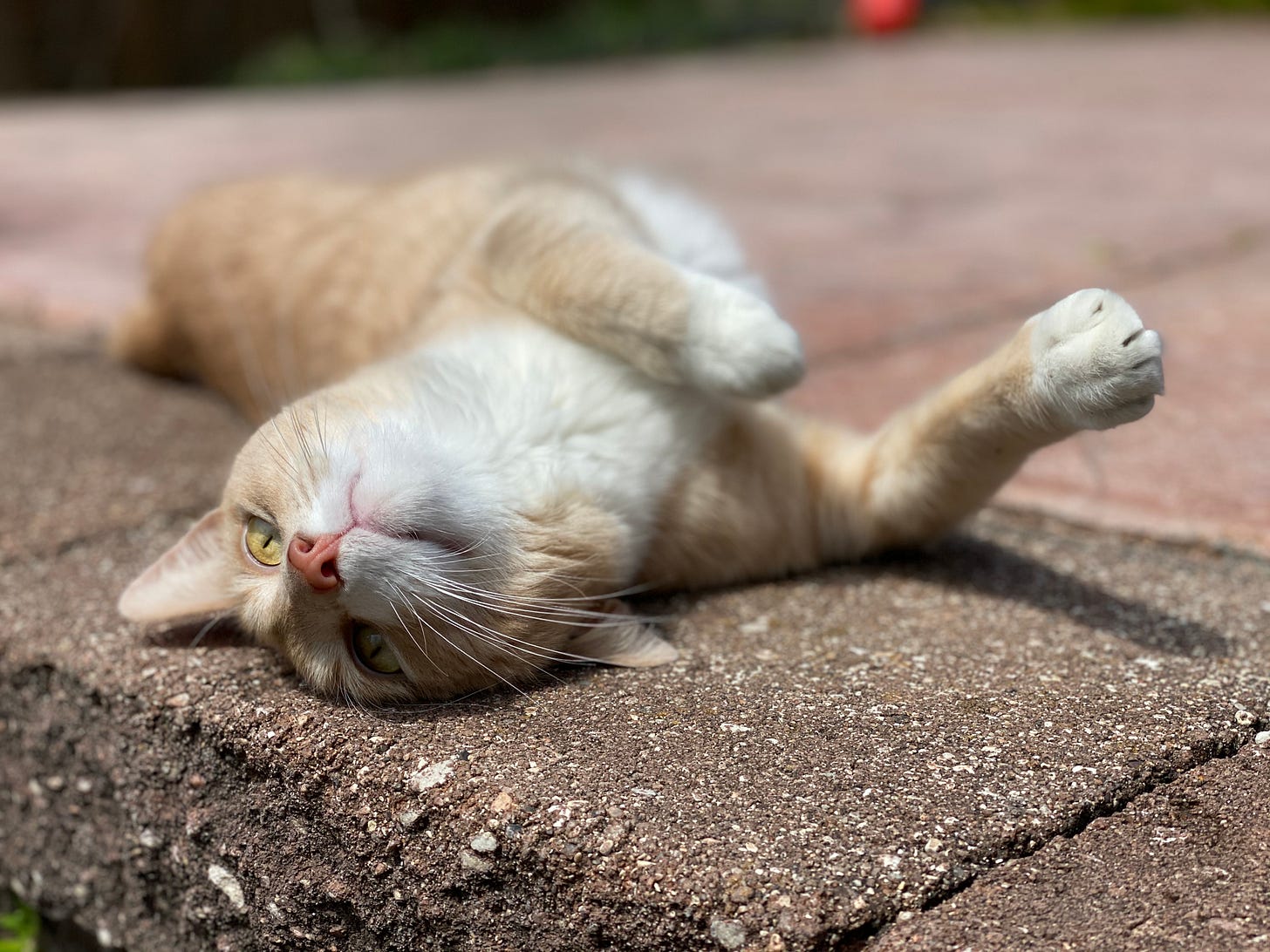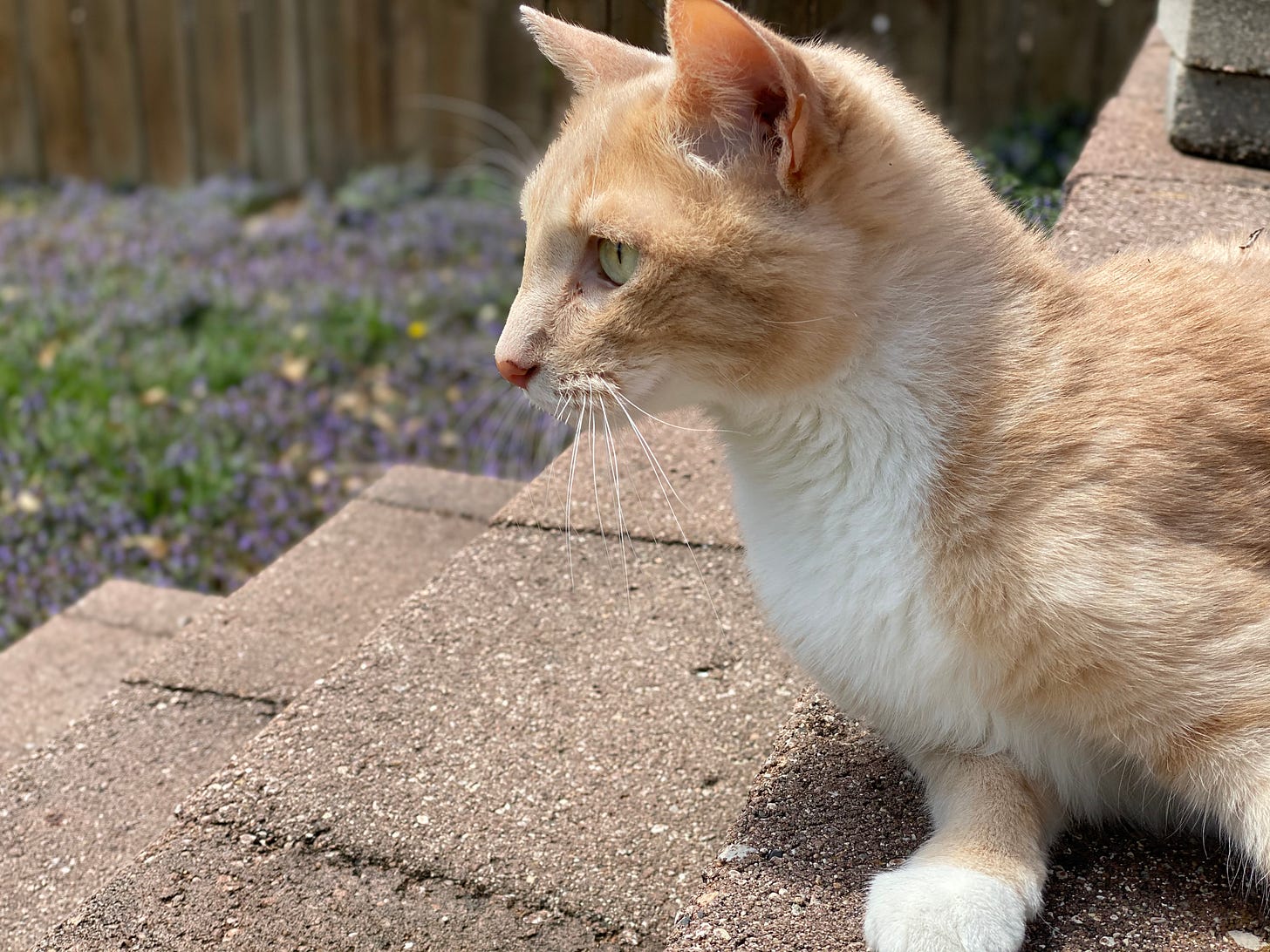
This weekend’s issue is late. I don’t feel particularly worried about it. There are plenty of other things to worry about.
I spent almost the entirety of today outside building a swingset for my kid using a “ready-to-build” kit from the hardware store. It was, in fact, ready to build. I, however, was not. Thankfully, the weather was kind and my wife is very patient (even if our kid is not at all at this point in her life).
The goal, by dinner-time tomorrow, is for my wife to be able to read a book in the shade while our kid wears herself out climbing and swinging.
We chose to open our bubble to my in-laws (who live here in town) this past week. I’m able to work from home (my employer has always given the option of being up to 100% remote) and we’ve been very careful when we go out. My in-laws are also very careful. My kiddo has just been really sad that she can’t see her people. And she still can’t see all of her people, but she can see a few of her favorites.
We try video-chats, but it’s not the same. She wants to hold hands, sit on laps, and to run circles around people.
In other news, I’ve been working on my book about teaching (which will be called “Teaching from First Principles”) and am getting closer to having an outline done. A problem I keep having is my relative lack of knowledge of LaTeX (which I’m using because of its ability to smoothly handle citations, etc. and also to help me separate my content from my styling).
We’ve also been building with LEGO blocks and going for long walks.
Productivity Is Not Working
This essay, by Laurie Penny, was the best thing I’ve read this week. I saw a lot of myself (at various times in my life) in it.
When I was younger, I put a lot of stock in how much I could get done. Given that I generally avoided hobbies, dating, or having more than a few friends at a time, the amount I could get done was usually “quite a bit.” (The joke among casual friends and a few exes was that I was actually some sort of factory robot).
But the drive to stay productive is about so much more than making rent. It is a moral discipline. When I check in with friends and family far away, I usually get an update on how productive they have or have not managed to be since we last spoke. “Productivity” is not a synonym for health, or for safety, or for sanity. But as a precarious millennial who for the past 10 years has answered every cautious inquiry about my well-being with a rundown of how much work I got done that day, I do understand the confusion.
Some of this was my own making, but also some of it was a function of circumstance. I was working as hard as I could get an arts non-profit off the ground and to also pay rent every month and maybe also make it as a working artist, all while trying to live through a huge recession.
I would organize my time so I had no time to feel any emotion other than manageable, everyday anxiety about my workload, with occasional breaks for feeling appropriately grateful that I still have a job I can do from home.
Those things all mostly happened, but at the expense of quite a few things (including relationships and my health). And then I burned out pretty hard and made some hard choices.
Frantic productivity is a fear response. It’s a fear response for 21st-century humans in general and millennial humans in particular, as we’ve collectively awoken from the American dream with a strange headache and stacks of bills to pay.
Growing older, switching careers, having healthier friendships and relationships, and going to therapy all helped me to realize that I was using productivity as a crude proxy for health or wellness — if I could get things done, then I must be doing okay.
I’m quite a bit less productive now (though still remarkably productive! Hooray for efficiency!), and also quite a bit healthier in most ways.
But all the same, here I am at midnight, after a full day of building a swingset for my kid, writing this newsletter as a break from working on my book outline, which I had been doing instead of getting a full night of sleep.
The essay was a good essay.
“Leave Bat-ney Alone!”
This twitter exchange made my week.



Jason Isbell’s Redemption Songs
I’ve been really enjoying Jason Isbell’s music, having first learned about him when he toured with Shovels & Rope. “Something More Than Free” and “Cover Me Up”, in particular, are two of my favorite songs of his.
This interview, written by Zach Baron, is really lovely.
Drinking almost killed him; then it became his great subject. “That turned into my sword,” he said. Before, he told me, “I had a bunch of tools and nothing to build. I'm really glad I have something to build now.”
The thing I really appreciate about Jason Isbell’s music is the keenness of observation. He seems to really be trying to see and understand the world, and also to see and understand himself. There’s a special type of honesty there, and I think in comes from clear sight and reckoning with the past.
“I feel like the whole process of growing as a human, as a man, as an adult, as a husband or a father, a musician or an artist, all those things come back to awareness. And you know, how many different perspectives can I be aware of and how many different stories can I really pay attention to? And how many things can I notice? Just as simply as that. Just let's see what all we can notice today.”
Also, the tiny desk concert is really charming. His wife, Amanda Shires, is the violinist, and they have a really fun exchange. If the above does it for you, check out a full concert video below:
The performance of “Cover Me Up,” in particular, is divine (1:07). But the whole concert is great.
Stockholm Syndrome
This was really interesting.





What It’s Like to Be Deaf When Everyone Is Wearing Face Masks
This interview of Dr. Julie Hochgesang by Jane Recker talks about what it’s like to be deaf when everyone is wearing a face mask (as you might have surmised from the title).
I’ve written before about my hearing loss. While I’m not deaf, I’ve had a heck of a time out in public when talking with people using face masks, as I completely lose the ability to lip-read (the same is true of all the phone calls I’ve been making instead of talking in-person). We don’t have many conversations out in the world, but more than once my wife has had to step in and take over for me because I simply couldn’t hear well enough to understand (or even guess at) what the other person was saying.
“We rely on social cues to read the room and figure out how to behave accordingly. On a normal day, that’s already exhausting for me. With a pandemic, it’s beyond exhausting. I don’t go out much. Today is day 42 of quarantine and I’ve been out to the store or restaurant less than ten times. Instead, I stick with the people I know who I can communicate with the best.
I’ve got my hearing-aids (when I wear them), some hearing, and also a bevy of adaptive strategies. But I do remember, especially when I was teaching, how exhausting it was just to keep track of everything that was happening in the room, speech-wise.
I’d still rather everyone wear their face masks, but it’s been a heck of a time.
Just Draw a Box
I’ve wanted to learn to draw well (I’m absolutely able to draw, as defined by making some sort of mark on some sort of paper) for most of my life. I took a few art courses in college and have dabbled here and there (never well). Last year, I even bought a camera so I could do visual art without needing to actually draw (I do take decent photographs sometimes).
Looking back, there were two problems I’ve historically had while trying to draw well.
First, my desire to draw well usually got in the way of drawing at all. I’m certainly no stranger to all-or-nothing thinking, nor unrealistic expectations.
Second, even if I could get past my perfectionism, I didn’t really know where to start. “Drawing” is such a huge discipline. I’d tried a “Drawing on the Right Side of the Brain”-style course in college, and it was okay. But I think I needed to start somewhere simpler (not easier, necessarily, but with fewer moving pieces).
A few days ago, I came across “Draw a Box”. The author’s approach seems to more or less mesh with what I know about learning and skill acquisition (I do feel like I know a lot about that). I haven’t had a chance to start it yet (there are a few projects I want to wrap up first), but did order some fine-line pens, which should be here around the time that my other projects finish.
Will I do anything with it? Who knows. I hope so.
The Silence
Have a lovely week, you lovely humans.
PS: Here’s another kitty, as promised.




